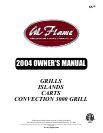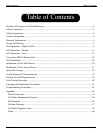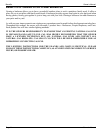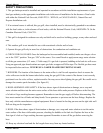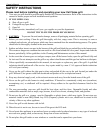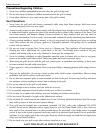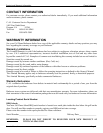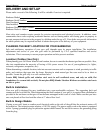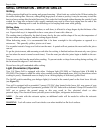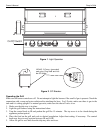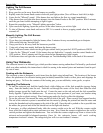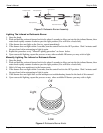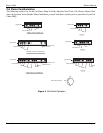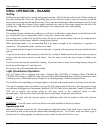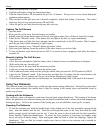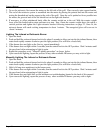Special offers from our partners!

Find Replacement BBQ Parts for 20,308 Models. Repair your BBQ today.

SAFETY PRECAUTIONS
1. This gas barbeque must be installed and operated in accordance with the installation requierements of your
local gas authority or the appropriate installation code in the area of installation. In the absence of local codes
with either the National Fuel Gas code, ANSI Z223.1 / NFPA 54, or CAN/CGA-B149.1, Natural Gas and
Propane Installation code.
2. If an external source is utilized, this gas grill, when installed, must be electronically grounded in accordance
with the local codes or, in the absence of local codes, with the National Electric Code, ANSI/NFPA 70. Or the
Canadian Electrical Code, CSAC22.1.
3. This grill is designed for outdoour use only and shall not be used in a building, garage, or any other enclosed
area.
4. This outdoor grill is not intended for use with recreational vehicles and/or boats.
5. Operate this gas grill only in areas free of obstructions for cumbustion and ventilation air.
6. CHECK FOR GAS LEAKS! Once the barbeque has been assembled and installed, make sure the gas valves
are in the “OFF” position. Turn gas “ON” at the source. Use a small brush to applywarm soapy water solution
to all the gas connections (1/2 water, 1/2 dish soap). If a gas leak is present, bubbling at the leak site will occur.
Using an approved pipe thread sealant can repair gas leaks or approved Teflon tape. The flexible gas hose must
be inspected before each use. NEVER USE A NAKED FLAME FOR TESTING LEAKS!
7. BURNERS: The location of the burners to the main orifice is vital for safe operation. check to assure the
valve orifices are inside the burner tubes before using the gas grill. If the venturi of the burner is not correctly
positioned over the valve orifices, explosion and/or fire may occur when lighting the gas grill. Be careful not to
damage the ceramic spark electrodes. (See figure 41)
8. HOSE ASSEMBLY AND SAFETY: If the hose shows signs of deterioration or damage, use a soap and
water solution and then test the entire outer surface of the hose while under pressure. Replace at the first sign
of a leak or if age cracking becomes apparent. Remember to turn the gas supply off before disconnecting. The
hose must remain free of kinks and sharp bends. Never puncture or put stress on the hose fittings. Replace the
hose only with the manufacturers original equipment. Hose is located in the drip pan area on the right side wall.
Pull out drip pan for inspection.
9. HOSE: If the hose shows signs of deterioration or damage, use a soap and water solution to test the entire
outer surface of the hose while under pressure, checking for bubbles at the leak site. Replace the hose at the
first sign of a leak or if age cracking becomes apparent. Remember to turn off the gas before removing the
hose.
10. Keep any electrical cord and the fuel supple hose away from any heated surfaces.
Owner’s Manual Safety Precautions
Owner’s Manual Page 3



